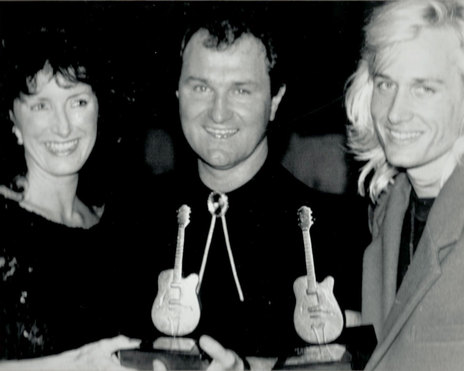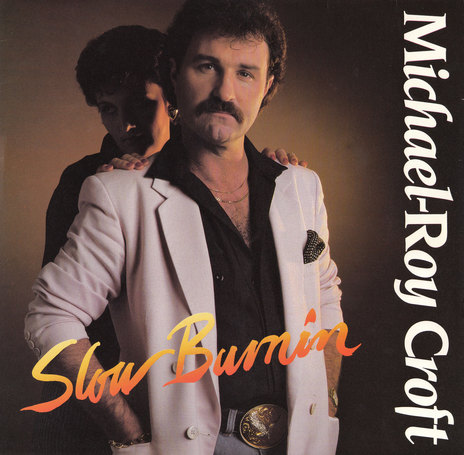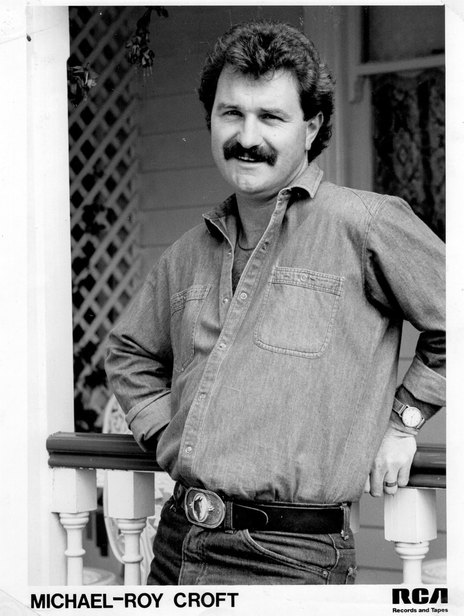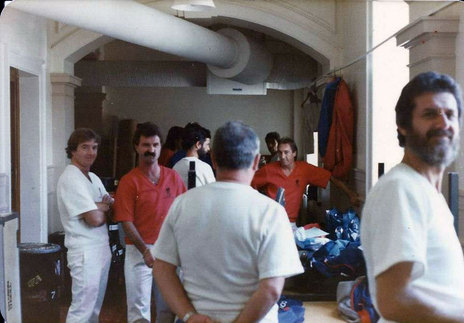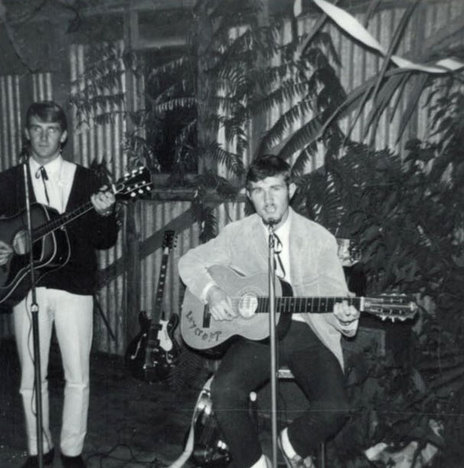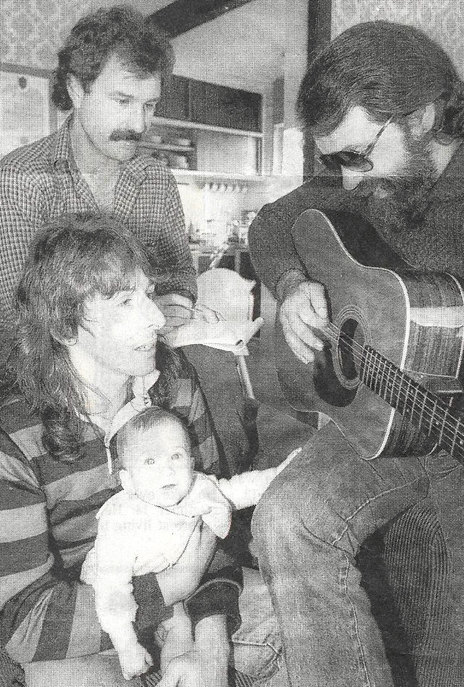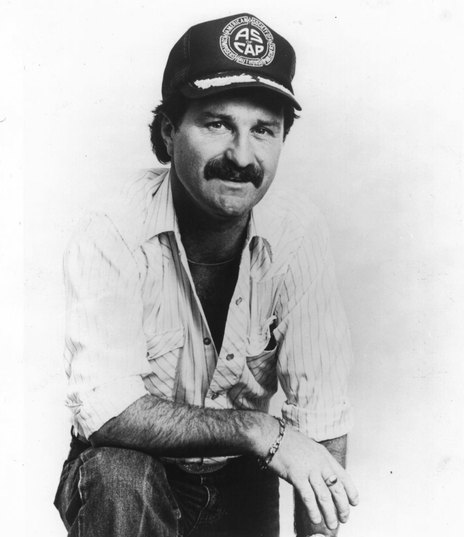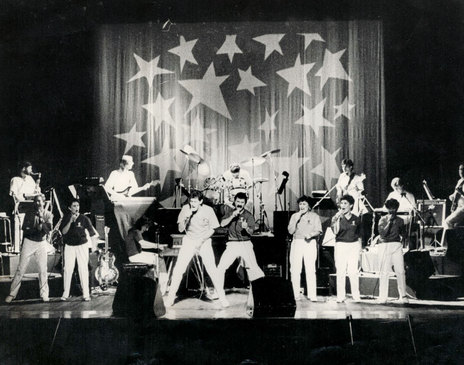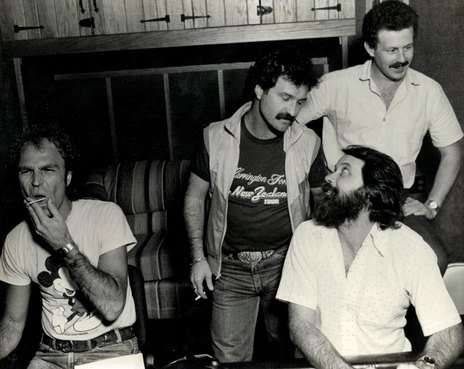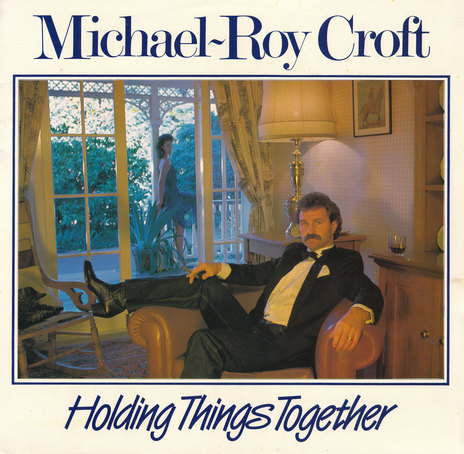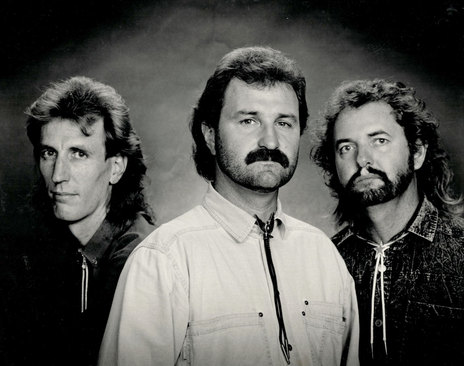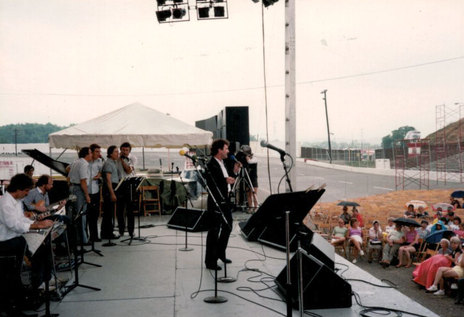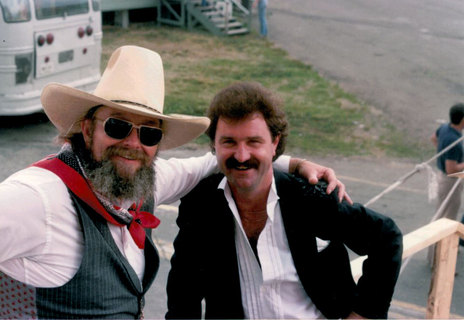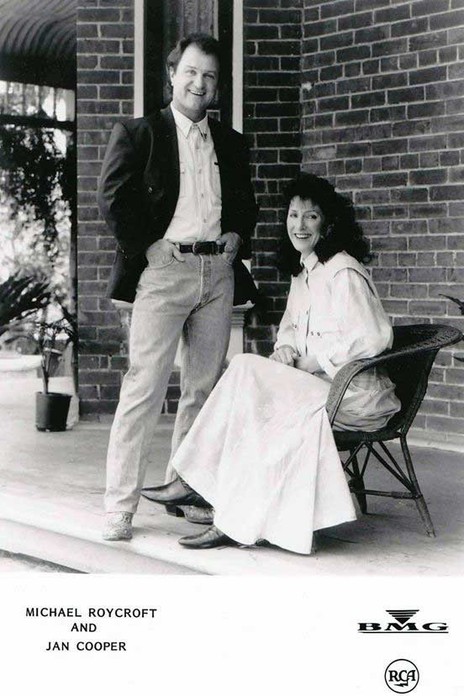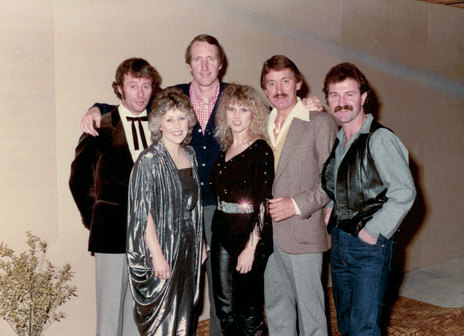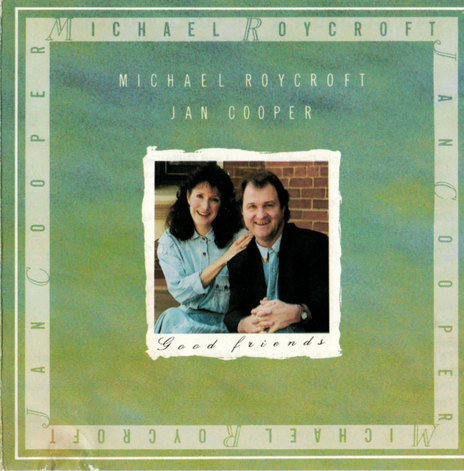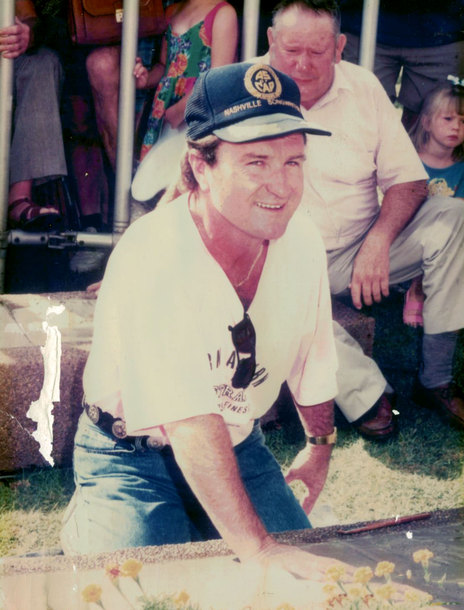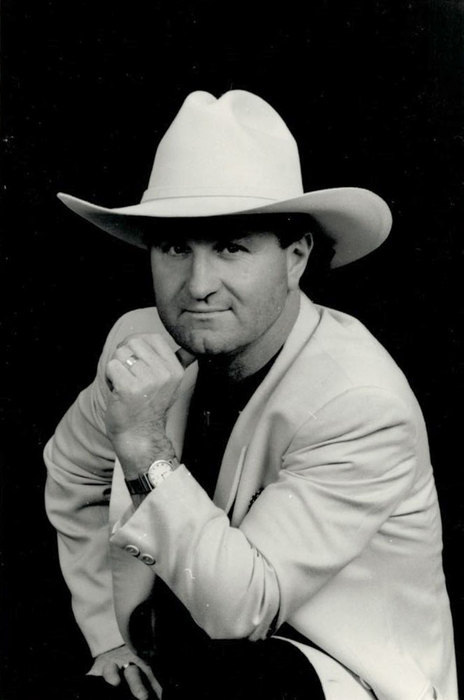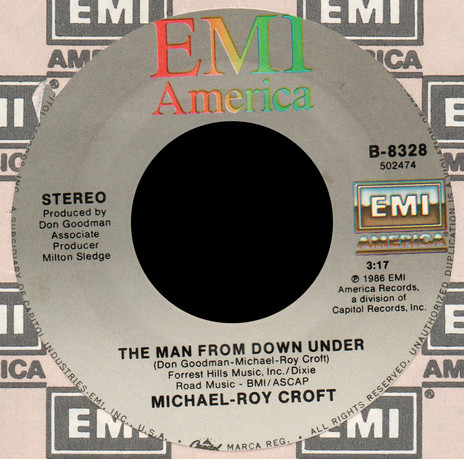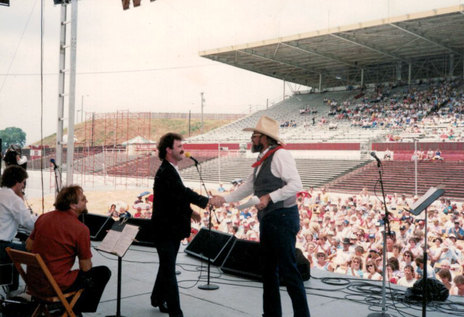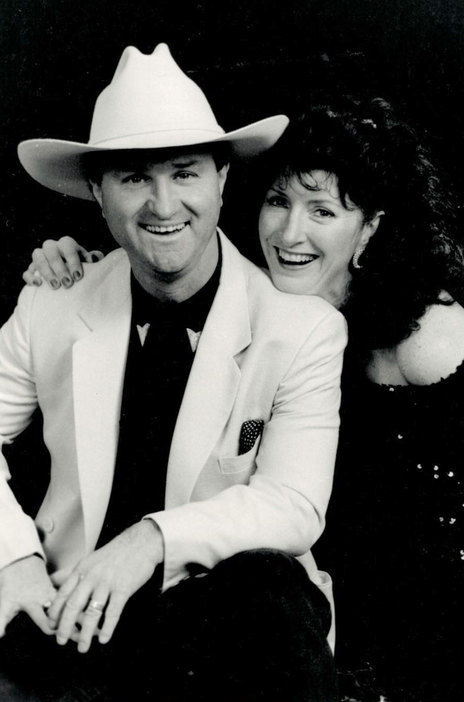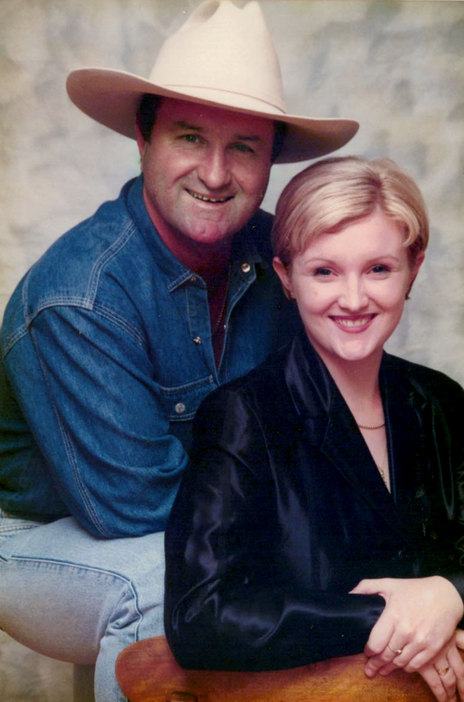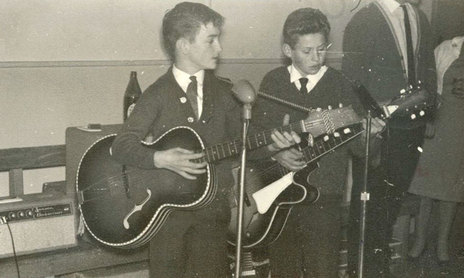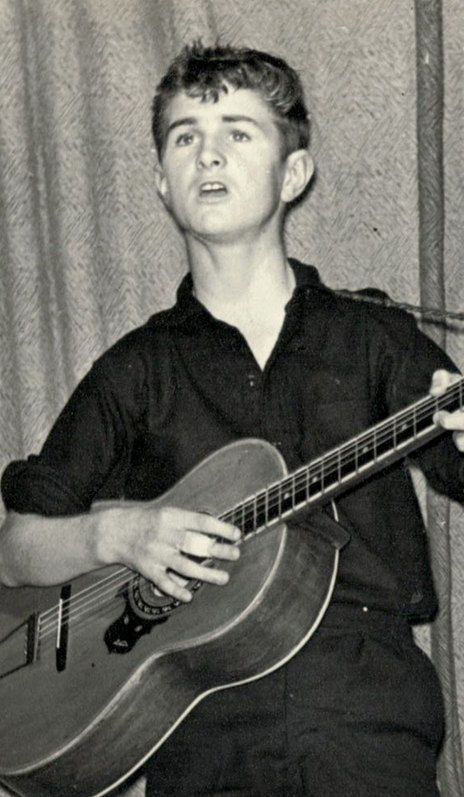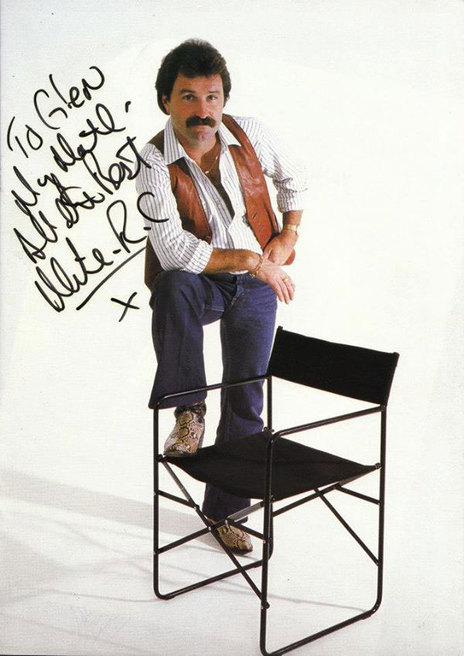His 1985 album Slow Burnin’ was a joint project for EMI America and EMI New Zealand and the company’s Nashville office even suggested he move to the country capital to pursue opportunities there. But it was the 1987 recession that forced Roycroft’s eventual departure to Australia, where he has remained since.
Michael Roycroft was born in Auckland on September 15, 1952. His father didn’t hang around, so his unwed mother took Roycroft back to her Waihi home town to be brought up among her 10 siblings.
She bought him a guitar when he was five, and at nine he started taking lessons from Waihi’s sole music teacher, Bill Purvis. A year or so later, Roycroft sang his repertoire of Tex Morton, Slim Dusty and Hank Williams songs for a 15-minute set at a Golden Valley farmer’s daughter’s kitchen evening.
When the farmer dropped Roycroft home, he handed the youngster an envelope and told him not to open it until he got inside and to be careful with it. Safe in his bed, Roycroft opened the envelope to find 20 quid inside – more than four times what his mother was making for a week’s work.
When they asked him to play bass, Roycroft withdrew the 20 quid from his kitchen evening gig and bought a Jansen Bassman 50 amp and a second-hand Hohner bass guitar.
He won the Waihi College Art Shield competition for his singing in the third form and was approached by sixth formers Ned Hunt and Dennis Ward to join the school band. When they asked him to play bass, Roycroft withdrew the 20 quid from his kitchen evening gig and bought a Jansen Bassman 50 amp and a second-hand Hohner bass guitar that his uncle, a French polisher, rubbed down and finished burnt orange.
The band spent the next few years playing Shadows instrumentals and the latest pop tunes at school dances, local rugby clubs, weddings and supporting out-of-town bands like The Satellites at Waihi Beach parties. During the week teacher Taffy Clare would give Roycroft the cane for smoking; at the weekend rugby club gig he would buy him a beer and return his smokes.
Dedicating his spare time to music and rugby, Roycroft failed his School Certificate and eventually undertook an apprenticeship as an upholsterer in Hamilton. He continued playing in a band with his high school mate Ned Hunt but they drifted apart when Roycroft’s love of country music was at odds with the others’ tastes.
One night at the Hillcrest Tavern, Roycroft got to chatting with members of The Countdowns, who asked him up to sing. He performed Ray Charles’ ‘I Can’t Stop Loving You’ and joined the band that night. Essentially a show band, The Countdowns would do seasons at the Chateau Tongariro and play all around the Waikato.
Roycroft met his future wife, Debra, and they moved to Melbourne in 1970. He took a break from music and was employed by a large retail group and became educated in the textile industry.
Three years later, they settled in Auckland and Roycroft visited Rusty Greaves’ country music club in Newmarket. A fan of the more progressive American country of Merle Haggard and George Jones, he ventured to the Eastern Districts Country Music Club in Pakuranga, where he became a long-time member.
There he hooked up with guitarist Jack Mooney and bass player Huru Rakete, who asked him to join their band Pocket Edition. Roycroft spent a couple of years with them as they served residencies at the likes of the Westward Ho and the Sorrento and he set up a textile business manufacturing bedspreads and satin sheets.
Business was booming and Roycroft quit the band the day his daughter, Raebekah, was born in 1977. For the next three or four years, he became an avid listener until Red McKelvie, an acquaintance through the Eastern Districts club, and Al Hunter came looking for a bass player.
The band didn’t last long and Roycroft again concentrated on his business until he was invited to the Star Awards in Tauranga as a spectator in 1982, where he met singer-songwriter Ritchie Pickett, the event’s musical director. They shared the same musical influences, and Pickett and awards convenor Barry Cooper, an old friend, convinced Roycroft to come back the next year and enter the competition.
He did, winning the duet section with Jan Cooper and the male vocalist and overall trophies with the TG Sheppard song ‘She Pretended We Were Married’ – a track he’d played constantly on his car stereo while travelling the country selling textiles. It also brought him success when he won the New Zealand Country Music Association Entertainer of the Year title in 1983.
It was Roycroft’s first time in a studio and the final vocal take was recorded with him hiding behind a curtain.
Within months, the song was recorded at Stebbing Studios with Murray Grindlay producing. It was Roycroft’s first time in a studio and the final vocal take was recorded with him hiding behind a curtain. After years of having his name misrepresented as Mr Roy Croft, Roycroft adopted the stage name Michael-Roy Croft for its release on RCA.
Grindlay had been introduced to Roycroft by session guitarist Red McKelvie and had opened Roycroft’s eyes to a whole new field of country singers and songwriters such as Vern Gosdin and John Prine, who existed outside the mainstream. Roycroft occasionally sang backing vocals on Grindlay’s jingles sessions.
Two more singles were released in 1984 – Roycroft’s own ‘Still At Tamworth’ and the McKelvie-produced ‘Married Women’. The former was written after Roycroft’s first trip to the Tamworth festival, where he was nominated for male artist of the year and new artist at the Country Music Association of Australia’s Golden Guitars for ‘She Pretended We Were Married’. The town was flooded during the festival and Roycroft was unable to get out.
Stranded at the Grande Motel, he and wife Debra and their old Eastern Districts club cohort John Wallace penned ‘Still At Tamworth’. Coming down with tonsillitis when he returned home, Roycroft sung the song over the phone to RCA’s Barry Forrester, who insisted it be recorded immediately.
Roycroft called on fiddler Cath Newhook and Peter Madill’s band Gentle Annie and got them to meet him at Mandrill Studios, where they learnt the song and recorded it live. Days later, Roycroft was in hospital having his tonsils out and then fighting off a throat infection. By the time he was discharged, Forrester had released ‘Still At Tamworth’ and it was climbing the charts in Australia.
With three singles behind him, RCA decided it was time Roycroft completed an album. He enlisted producer Ray Columbus and they cut the remaining eight tracks at Stebbing, including a duet with Pasty Riggir on ‘It’s A Dirty Job’. The album was named Holding Things Together, for the Merle Haggard-written opening track, and included Roycroft’s own ‘Mr Bartender’.
Roycroft made one appearance on That’s Country before the TV series bit the dust amid claims of favouritism that brought about a Commission of Inquiry. He played the dozens of country music clubs around the Waikato, Auckland and Northland and the odd gig with Billy T. James, but was restricted by his business commitments from touring extensively.
When the American Country Music Association came to New Zealand for a board meeting and an APRA event in Wellington, Ray Columbus invited Roycroft to attend. Seated with Capitol/EMI America Nashville chief Jim Foglesong and country crossover fiddle-playing star Charlie Daniels, he presented Foglesong with a cassette of his songs and was able to assist Daniels in acquiring a joint.
Soon after, Roycroft received a phone call from Nashville asking if he’d come over to discuss a combined project between EMI New Zealand and EMI America’s Nashville set-up and while there represent New Zealand and Australia at the CMA’s Fan Fair. Roycroft jumped at the chance but it didn’t impress the Australian country music industry.
Nashville producer-songwriter Don Goodman, who had songs recorded by Lee Greenwood, Dobie Gray and Charley Pride, and drummer Milton Sledge, who played in Nashville and Muscle Shoals for Percy Sledge, Alabama and others, were dispatched to Mandrill to record beds with local session musicians including Red McKelvie, Bruce Lynch and Carl Doy.
The tapes, and Auckland engineer Tim Field, were then taken back to Nashville for overdubs by session greats such as pedal steel player Sonny Garrish and fiddle player Ron Levine, and Roycroft’s vocals, before being mixed by Ron “Snake” Reynolds – who had worked on recording projects with the likes of Ray Charles, Merle Haggard and George Jones.
Slow Burnin’ was released in New Zealand and Australia in 1985 and the first single, ‘Diamonds Are Forever’, was released in Canada and the United States, reaching No.1 in around nine states and climbing to around 70 on the Cashbox charts. EMI America suggested Roycroft move to Nashville, but with two children and their business in Auckland he and Debra decided against it.
The album included the Roycroft-Goodman collaboration ‘Man From Down Under’, which was a country hit in Australia and was nominated as single of the year at the Golden Guitars in 1986. The Country Music Association of Australia denied the album eligibility because of the Nashville involvement.
When the recession hit New Zealand in 1987, Roycroft’s business hit the wall and he packed up his family and moved to Tamworth.
When the recession hit New Zealand in 1987, Roycroft’s business hit the wall and he packed up his family and moved to Tamworth. He had plenty of friends and contacts in the town, bought a café and started gigging for local booking agency Axiom, reverting to his real name.
After initial forays as a solo act with a simplistic drum machine – driving 200-odd kilometres to public bars in the likes of Narrabri to sing requests of ‘Me And Bobby McGee’ over and over – Roycroft formed the band The Cosmic Cowboys with Tamworth guitarist Alwyn Aurisch, whose leanings were more towards Toto.
The Cosmic Cowboys played around New South Wales for the next five-and-a-half years and were often called on to open for touring bands that came to town. All the while, Roycroft ran a New Zealand show at the annual Tamworth festival with the likes of Eddie Low and Patsy Riggir guesting.
In 1991, Roycroft’s duo partner from the Star Awards eight years previous, Jan Cooper, was on the show. She and Roycroft recorded the duet album Good Friends, which included their winning number from the Star Awards ‘As Far As This Feelin’ Will Take Us’. It won them the 1992 Golden Guitar for vocal duo or group of the year and Roycroft was honoured with inclusion in the Hands of Fame in Tamworth.
The success of Good Friends spelled the end of The Cosmic Cowboys and saw Roycroft and Cooper touring Australia for a couple of years. Roycroft and his wife had set up a real estate office in Tamworth but decided to move to Brisbane after the touring, becoming involved in the food industry.
During the 1990s, Roycroft focused on the singing career of his daughter, Raebekah, recording and producing her and even appearing on a duet on one of her albums. Since marrying in 2002 and moving to the Netherlands with her Dutch husband, Raebekah Roycroft has released her music there.
Michael Roycroft has concentrated on his business interests, surviving a heart attack and triple bypass at the age of 51, but has occasionally come out of retirement for spots at Tamworth or back in Tauranga. He and Debra now live in Newcastle, New South Wales, where he still owns that first guitar his mother bought him as a five-year-old, recently rebuilt from many pieces.
